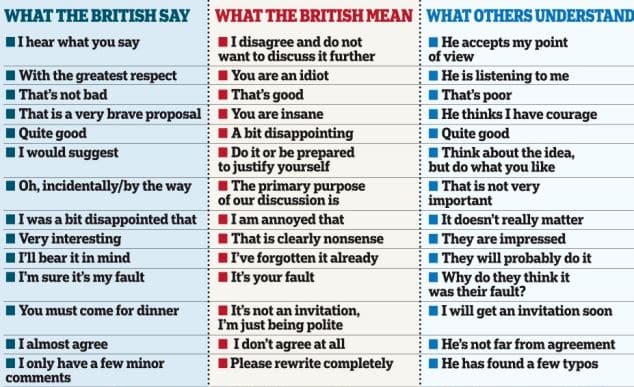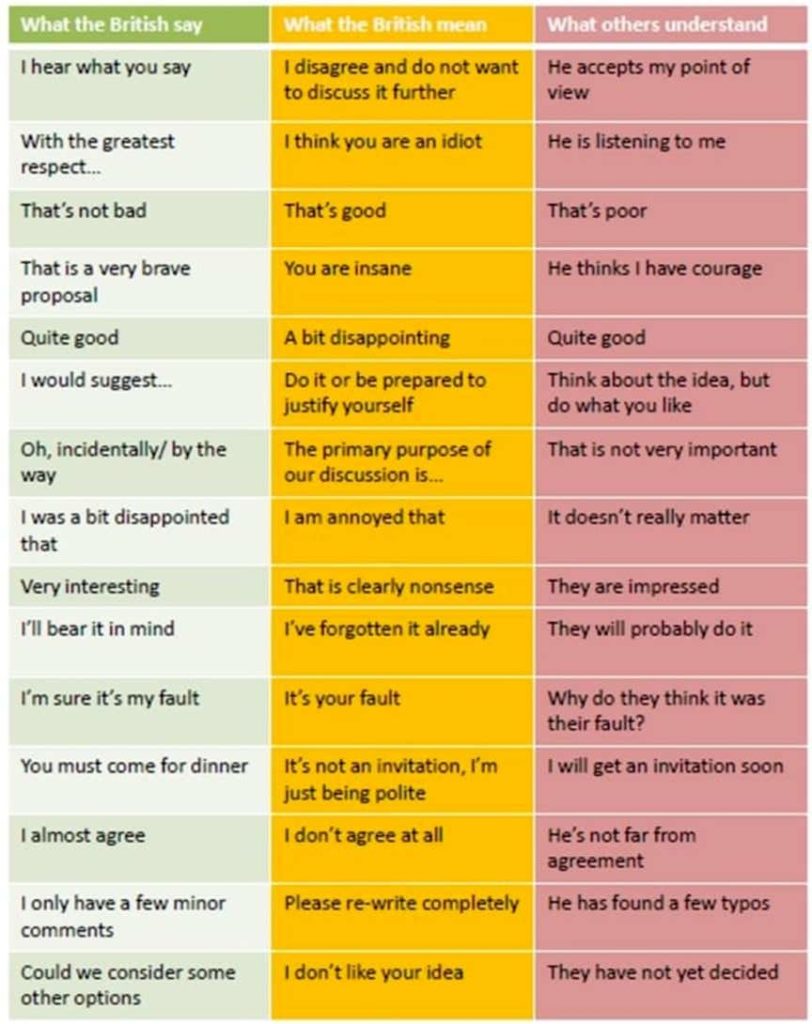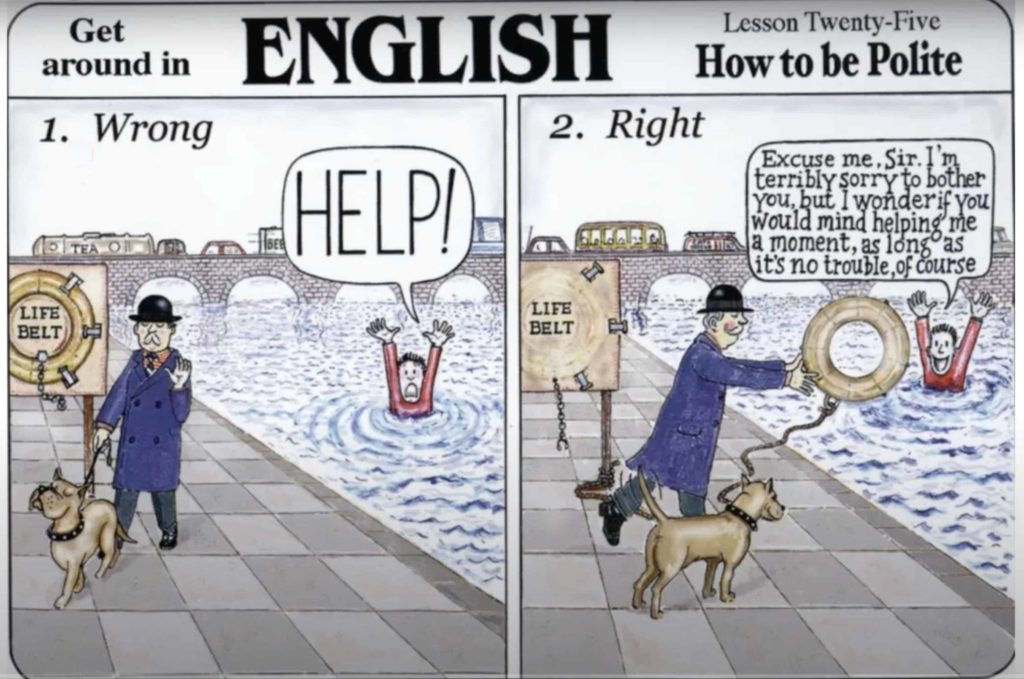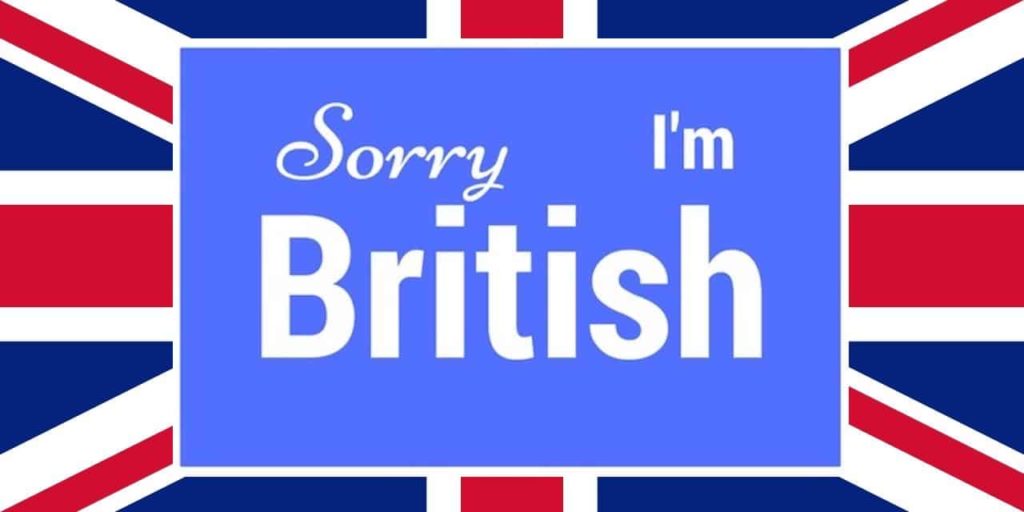Discover the intriguing world of communication as we explore the phrases and expressions encapsulating things British people say.
Keep reading to unveil with our help the hidden meanings and cultural intricacies behind the British English language, a journey to shed light on the art of British communication.
As an audio and video localisation agency, interpreting the truth behind British niceties is our daily basis job. So, contact us if you need help not being lost in translation in your audiovisual projects.
Table of Contents
ToggleThe Truth Behind Everyday Things British People Say
From not bad to quite good, how the trait of being polite stops us from saying what we mean?
Ever been told by a new neighbour ‘You must come for dinner’ then spent weeks waiting for a follow-up invitation that never arrives?
Or been thrilled when the boss said he’d bear your ‘very interesting’ idea in mind and been surprised when it was never mentioned again.
Then you’ve been victim of the uniquely British trait of being too prim and polite to say what we really mean. And if it can be baffling for us, imagine what it must be like for foreigners who take our every word at face value.
So let us explore how this cultural phenomenon perplexes us and foreigners who interpret our words literally, with the help of a niceties translation table which has become a massive hit on the internet:

This viral table reveals that when a British person begins a sentence ‘With the greatest respect…’, probably they’re really saying, ‘I think you are an idiot.’
‘I hear what you say’ means ‘I disagree and do not want to discuss it further’ while ‘That is a very brave proposal’ could be translated as ‘You are insane’.
Watch this video for concrete examples highlighting the potential disparities between things British People say and what they truly mean. It provides further confirmation of the subtle nuances in British communication:
The chart, posted on numerous internet blogs, has received thousands of comments acknowledging that it’s spot on – from foreigners and Britons alike.
New York-based Joanne Goddard in her blog A Cup of Jo says her English father often left her baffled.
‘When we were in high school, my sister asked him if she could drive to Detroit with her boyfriend to see a band. He said, “I’d rather you not.” She went anyway. When he got mad later, she was confused: “But you never said I couldn’t go”.’
Joanne Goddard

The origins of the table remain undisclosed, although speculation suggests that a Dutch firm crafted it several years ago as a lighthearted aid for executives navigating the intricacies of working in the UK.
Since its inception, the table has continued to evolve, capturing the essence of things British People say. Online contributors have enthusiastically shared their translations and interpretations.
For example, Pam Burton humorously revealed that “Leave it with me” often means “Hell will freeze over before a solution is found” in British communication.
Another participant humorously noted that when a British person says, “When you get a minute,” they mean “, Do this immediately.”
Additionally, a third contributor highlighted that “Let’s keep in touch” can subtly imply “, I never want to see or hear from you again.”
Peter Atkin shared a personal anecdote:
“While attempting to explain to a French company why their seemingly excellent letter of recommendation would essentially damn me to the deepest pit of hell in the eyes of any English company, I came across this article.”
Ultimately, the prevalence of politeness and the avoidance of confrontation underlie these linguistic subtleties, sometimes leading to awkward and uncomfortable situations.
It is essential to recognize that not all British individuals adhere to this communication style. The British are renowned masters of understatement, and whether this characteristic annoys or intrigues you, it undoubtedly contributes to the cultural quirks that make life abroad or an accurate audiovisual translation a tad more challenging.

Politeness in Cross-Cultural Communication
Being polite and courteous is integral to effective communication and being responsible global citizens.
In our daily interactions, manners are the most common way of expressing politeness, spanning various situations and age groups.
However, let’s examine if we overuse phrases such as “Please” and “Thank you,” particularly in light of things British People Say. Moreover, when we use these phrases abroad, are we indeed as polite as we perceive ourselves to be?
In the UK, “Thank you” is ubiquitous. From children expressing gratitude to parents to strangers thanking each other on the street for small gestures like holding doors and even passengers thanking bus drivers – it’s ingrained in British culture (read about the different British accents).
Not saying “Thank you” might be considered rude. But is this universal?
In Spain, while “Thank you” remains common, it is less expected, giving it more significance when spoken. It’s not deemed necessary in many situations where Brits would use it (take a look at our Spanish Voice Over services).
In Sweden, “Tack” serves as both “Please” and “Thank you,” reflecting the politeness of the Swedish language.
Apologising is also a common British trait, diminishing the word’s impact over time, even when not at fault.
While manners and politeness are crucial in languages worldwide, customs vary, and excessive use of polite phrases can ironically dilute their intended effect.
Audio and Video Localisation Services
Making simplistic binary language comparisons without considering context can inadvertently cultivate imbalanced opinions, potentially fueling resentment and similar sentiments. We should keep it mind that also when localising audiovisual content.
It is essential to remember that, despite the unique communication style of things British People say, they are equally capable of fairness, honesty, trustworthiness, narrow-mindedness, dishonesty, and untrustworthiness, just like anyone else.
Let us avoid hasty judgments based solely on things British People say and strive to grasp the complete picture before concluding individuals. This is particularly true when translating.
Remember, Golocalise Language Specialists are here to help!






















